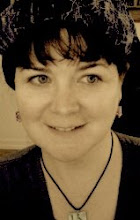In a letter from Rachel Mordecai Lazarus to Caroline Mordecai Plunkett dated 17 May 1821 at Wilmington (Southern Historical Collection), we read that "Eliza Bradley (Mrs. Hill) has the same lovely eyes we used to admire, and is quite a pleasing woman." In another letter dated 27 August 1827 (same writer, same library, this time to Ellen Mordecai), that "Mrs. Hill (E Bradley) confined but a fortnight lay with the rain dripping on her, changed repeatedly, the house shaking & roof vibrating with the wind, kitchen afloat, children climbing on the bed & crying for something to eat, when to cap the climax the door blew off its hinges & for some hours two persons were obliged to hold it up by main force, neither man nor tool to be had...Mr. Bradley's house surrounded by water & in danger of being carried away, salt works much injured." So Eliza's former teacher knew her in her married life in Wilmington, well enough to know her circumstances in a bad storm.
Turning to the genealogical web to fill in more details: Miss Eliza Rebecca Bradley (1800-1866) was daughter of Richard Bradley, Esq. (1759-1834, a bank officer) and his first wife Rebecca Green (c1770-c1805). She was very young when her mother died, and soon had a stepmother, Eliza Claudia Yonge, and eventually nine half-siblings. Eliza was sent to the Mordecai school when she was 10, but after just one session she returned to the family. She married Dr. John Hill (d. 1847) on 15 May 1817, in Wilmington. As the letter by Rachel Lazarus suggests, she had quite a few children by 1827: this website lists ten children born to her. Eliza was a widow at 47, and died at 66. By blood and/or by marriage, Eliza Bradley Hill would have been kin to much of Wilmington's elite, including the DeRossets, the Greens, the Browns, the Wrights, the Swanns, the Lords, and the Jones families.
Why did she come to school and leave so quickly? I think I found the answer! Her first cousin was Mary Brown. Mary Brown married Alexander Calizance Miller (d 1831*), the Mordecai school's mysterious and dashing music instructor. This was a blow to the Mordecais, professionally and personally (Ellen Mordecai, in particular, tearfully confessed a crush on the Frenchman). The wedding was in July 1811. So Eliza might well have returned to Wilmington for the wedding, and not returned to school afterwards, given the awkward feelings that might exist toward the Bradley-Brown-Green-Wright clan right at the moment.
*For more on this man, see William E. Craig, "The Mysterious Frenchman: Alexander Calizance Miller in America, 1797-1831," Lower Cape Fear Historical Society Bulletin 29 (October 1985): 1-6.
*For more on this man, see William E. Craig, "The Mysterious Frenchman: Alexander Calizance Miller in America, 1797-1831," Lower Cape Fear Historical Society Bulletin 29 (October 1985): 1-6.

No comments:
Post a Comment